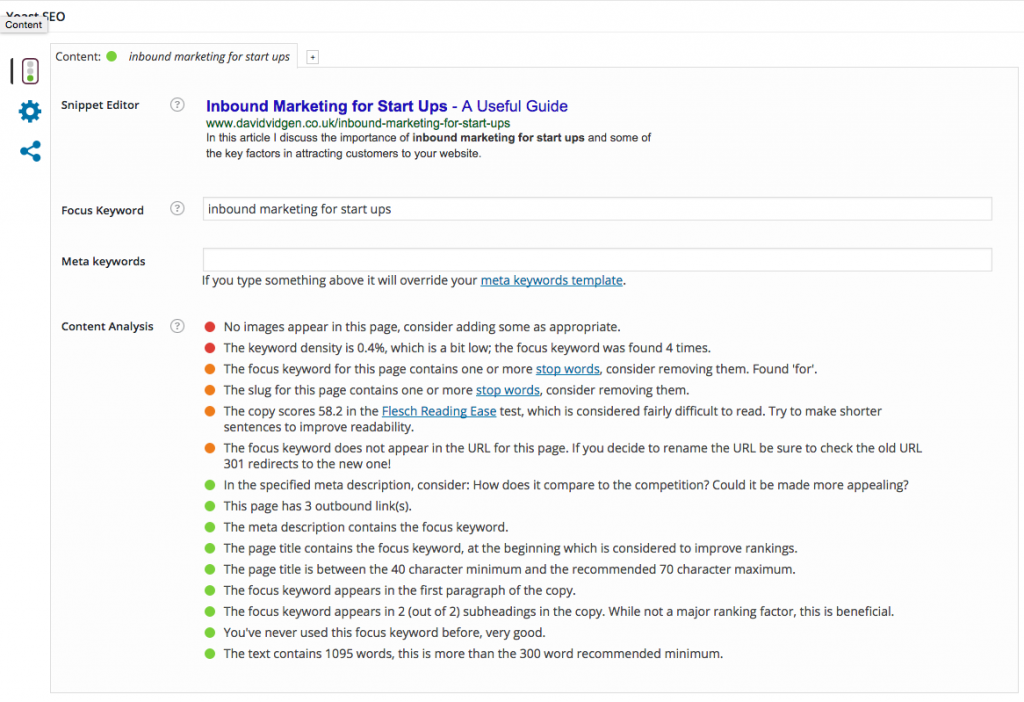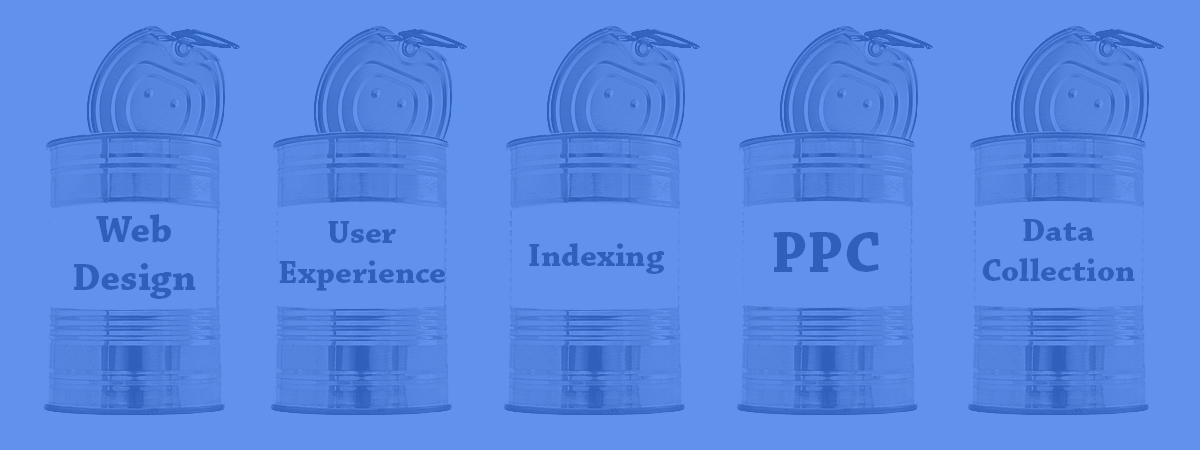Inbound Marketing for Start Ups is often daunting, from experience I can categorically tell you that the hardest part of running any business is acquiring new customers – especially for small business owners. No matter how easy things look like on paper, they never quite translate into reality. It’s common knowledge that a good starting point is to have a website, however there are websites and there are websites that bring customers – the latter being of highest priority. In this article I am going to share with you the importance of inbound marketing for start ups and how your website can attract visitors.
- Website Design, User Experience (UX) and Search Engine Crawling/Indexing
- Pay Per Click Advertising
- Collecting Data and Email Marketing
A website is one aspect of inbound marketing. Social Media and Pay Per Click Advertising is another. Inbound Marketing is really any type of digital marketing that drives visitors, leads and conversions through your website. One of most important aspects of inbound marketing is to have a good understanding of how your customers use the internet to solve their problems and find solutions, especially when it comes to the use of search engines such as Google. One of the fundamental errors that start up companies make is they assume that because they’ve built a website, people with come. This i’m afraid is absolute tosh! A website, like any other business, needs to be promoted and put in front of potential customers. There are many ways this can be done, some of which which I will discuss below.
Inbound Marketing for Start Ups – The Website Design / User Experience (UX) and ability to be crawled by Search Engines
Inbound Marketing is not something for the most part that can be simply bolted onto a website. The design, UX and ability to be crawled by search engines are basic factors that need to be incorporated at the start. Most businesses want a professional looking website, whether large or small, however it’s design boils into insignificance if the user is a) unable to find it b) navigate around the website c) find the information that they require in a matter of seconds. At this point, I go back to earlier where I stated it was vitally important that you understand your customers and how they use the internet. This involves knowing what kind of queries they use on search engines in relation to the products and services you supply. This has huge implications to the design, layout and way your website needs to be built. Here I give you some examples:
Business A is a Beauty Salon based in Central London. They offer a vast array of treatments such as massages, facials, waxing etc. They are trying to attract customers who live and work within a 5 mile radius of their salon. When it comes to website design, for the most part, their clientele are professional females, aged 25 – 50. Typically when they use search engines they would use queries such as: “best facial treatments Central London” “beauty salon near me” “slimming body wraps oxford street” “how long does a body wrap take?” “how many inches will I lose after a body wrap treatment?”. They build a website that contains individual pages for each of their treatments they provide. That way they can target users by specific treatments (and specific search queries), and with the help of appropriate Google indexing, the searcher is more likely to land on the page relevant to their query.
Business B is a independent consultant that specialises in prepaid funeral plans. Their market is both Male and Female aged 50+. Typically, they use search phrases such as “best prepaid funeral plans” “cost of prepaid funeral plans” what’s the difference between a prepaid funeral plan and life insurance?”. Given the age of their buyers persona, the website needs to be uncomplicated and written in an appropriate style. Again, we build pages relevant to the users needs and the search intent.
Having this level of understanding enables us to begin producing individual pages that seeks to answer such queries. We call this the buyers journey, and our aim is to product content that is designed for each stage of the journey (read more about the buyers journey). For the purpose of this article, from here on I will assume that you now understand the principle of the buyers journey; the importance of having different content for each and how to encourage them to move to the next stage of the buyers journey.
Now we have various types of content that seeks to both attract and convert website visitors, you now need to understand how search engines crawl your website and ensuring that your website meets their standards. Why is this important? Well, if you design a website without search engines in mind, chances are their customers/users will never discover your website content, because it’s not likely to be listed in their index. A search engine is really a library, they will crawl your website and seek to index your website appropriately. If it’s been designed appropriately, they will begin to show your pages when individuals perform queries that are related to your content. This is commonly referred to as Search Engine Optimisation or SEO for short. If you are a small business start up, then you really can’t go wrong with using WordPress as your website content management system, and a couple of useful plugins such as Yoast SEO and Wordfence. At this point, if you’ve never heard of SEO or have any basic understanding, can I recommend that you read more about SEO for beginners. Yoast SEO is a useful plugin to install into your WordPress website to help you create pages and blog posts that focus on particular customers issues and search queries and in a search engine friendly way. Wordfence is a WordPress Security plugin that will ensure that your website is safe and difficult to hack.

Yoast SEO Plugin encourages you to place your focus keywords in the title, meta description and within the page content. It also informs you about outbound links and other factors that will help your website be crawled and indexed correctly.
You can also read more about designing websites with inbound marketing in mind at Hubspot and a previous case study
2. Inbound Marketing for Start Ups – Pay Per Click (PPC) Advertising.
Google and other search engines offer you the opportunity to display your website for particular search phrases and words. PPC can be really useful for start ups because it puts your company right up their at the top of search engine results pages (SERPS) for specific words or phrases that you choose to sponsor. The downside to PPC is that it can be expensive because you pay more for words and phrases that have high amounts of competition. So if you are in the tourism industry, you could easily pay £16 per click for phrases such as Holidays to New York. Local Dog groomers using PPC would expect to pay between £0.50 – £1 per click and so on. For me personally, PPC is very useful, but like other marketing methods, you really need to have a good understanding of writing adverts and choosing keywords that will provide you a good return on investment. Otherwise, it will be expensive and provide little return. I strongly advise you to seek help if you are considering using Google Adwords because the interface is complicated and daunting for the untrained eye.
3. Inbound Marketing for Start Ups – Collecting Data and Email Marketing
One of the key requirements of any website should be to collect user data that enables you to re-market your products and services at a later date. 96% of visitors to your website will never buy on their first visit, so the only way you can encourage them is to collect their data and use it appropriately down the line. In order to collect data, you have to incentivise the reader if you want them to part with their sensitive personal data. You can do this by offering discounts, coupons, or by plugging the knowledge gap – providing them with specific and valuable information that they cannot get elsewhere. Once you’ve got the data, email marketing should be carried out the same way you design content for users at the different stages of the buyers journey. Your emails should be personal, specific to their needs and relative to their position in the buyers journey. Another useful article that I have previously written is: how to turn a stranger into a customer. Whilst this is aimed at beauty salon owners, the principle is identical for all businesses and shows you ways in which to tailor content that seeks to collect data.
Article by: David Vidgen Ltd an Inbound Marketing Agency in Birmingham
What you should do now
If you are serious about having a great website, you should read my blog, it’s packed with ideas and suggestions to help improve your site.
If you’d like me to dramatically improve your website and bring you new customers, visit my website designs for small businesses page and then contact me for more information.
And if you have any comments or questions about this article, contact me.


